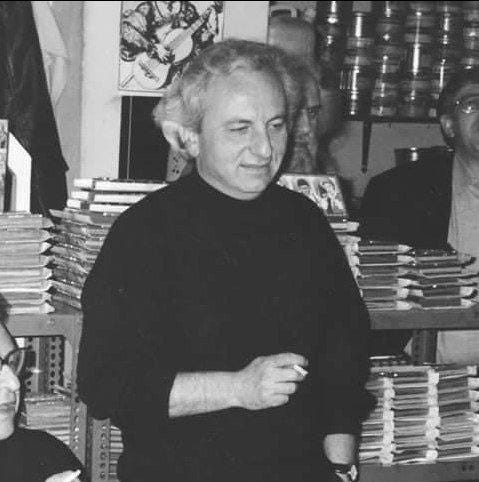Much has been written to try and make sense of the political system we find ourselves under in the West today. Political philosophers love to debate to what degree today’s politics is the end result of classical liberalism, Christian presumptions about the dignity of the individual, or some earlier strain of democratic thought. On the right, some, such as the paleoconservative intellectual Paul Gottfried, have pushed back against what they view as an excess of this kind of genealogical thinking. Can we really understand the mindset of a woke, Generation-Z activist by looking to some long-dead English political philosopher? There is an unlikely source for making sense of this debate: Panagiotis Kondylis, a barely translated Germanophone Greek sociologist.
Though Kondylis claimed his main intellectual influence as Karl Marx, his thought is often represented as an amalgamation of Marx and Carl Schmitt. Paul Gottfried draws on the work of Kondylis in his book After Liberalism, to argue we have moved to a post-liberal age of mass democracy.
Gottfried sees Kondylis as part of a tradition of counter-enlightenment thinkers who “used the critical approach of the Enlightenment to question and even devalue their final vision.”1 The Marxist influence of Kondylis is most evident in his detailed analysis of the class relations and state form dictating ideology and culture, though. as Gottfried observed, he resembles European New Right thinkers in his defence of traditional communities and ways of life, and his natural disdain for the process of their dissolution to mass democratic ways of life. A process which, like other New Right thinkers, he sees as led by the American Empire through its spread of human rights ideology and its expansionary economic system.
Kondylis identifies two distinct ways of life which have been adopted by modern Europeans (and eventually the world): bourgeois liberalism and mass democracy. Mass democracy grew out of bourgeois liberalism. It adopted, and still maintains many principles which were developed under liberalism, (equality, tolerance, pluralism) – though each is now less formal, instead serving as general ethical guides to a managerial system which cares less for the bourgeois individualism enshrined by its predecessor. Mass democracy is the social formation that has arisen as a result of the uniquely modern mass-participation in the political system. It is a totalising way of life created by a set of conditions unique to modernity, primarily universal suffrage, social mobility and material abundance.
Liberalism provides many of the ethical preconditions for the development of mass democracy, perhaps more importantly, it provided fertile soil for the development of other radical and modernising ideas which would help develop mass democracy into an all-encompassing world system. Concentration in the cities in the early 20th Century led to the development of modernism and a number of avant-garde artistic movements which challenged the moral order and faith in reason which had undergirded bourgeois liberalism. Western thought became increasingly unmoored and subjectivist, focused only on self-expression and hedonism. This only came to full realisation with the postmodernist movement, which was also more explicit about using relativism and deconstruction as a way to tear down older, bourgeois modes of thought and prevailing anti-democratic hierarchies.
Since mass democratic ideologies leave no basis for establishing hierarchies of anything but material wealth and competence, its basis for legitimacy becomes the promise of delivering the greatest material abundance for the greatest many. It adopts many of the goals of socialist ideologies of the 19th Century, and makes their central criticisms of capitalism redundant by delivering material wealth for the masses and the dissolution of a rigid class system. Though great inequality and wealth disparities continue to exist, the oligarchies of bourgeois liberalism are dissolved, and the state’s role as a guarantor of delivering material abundance stewards the economic process, while the principle of unlimited social mobility and equality for all becomes sacred.




